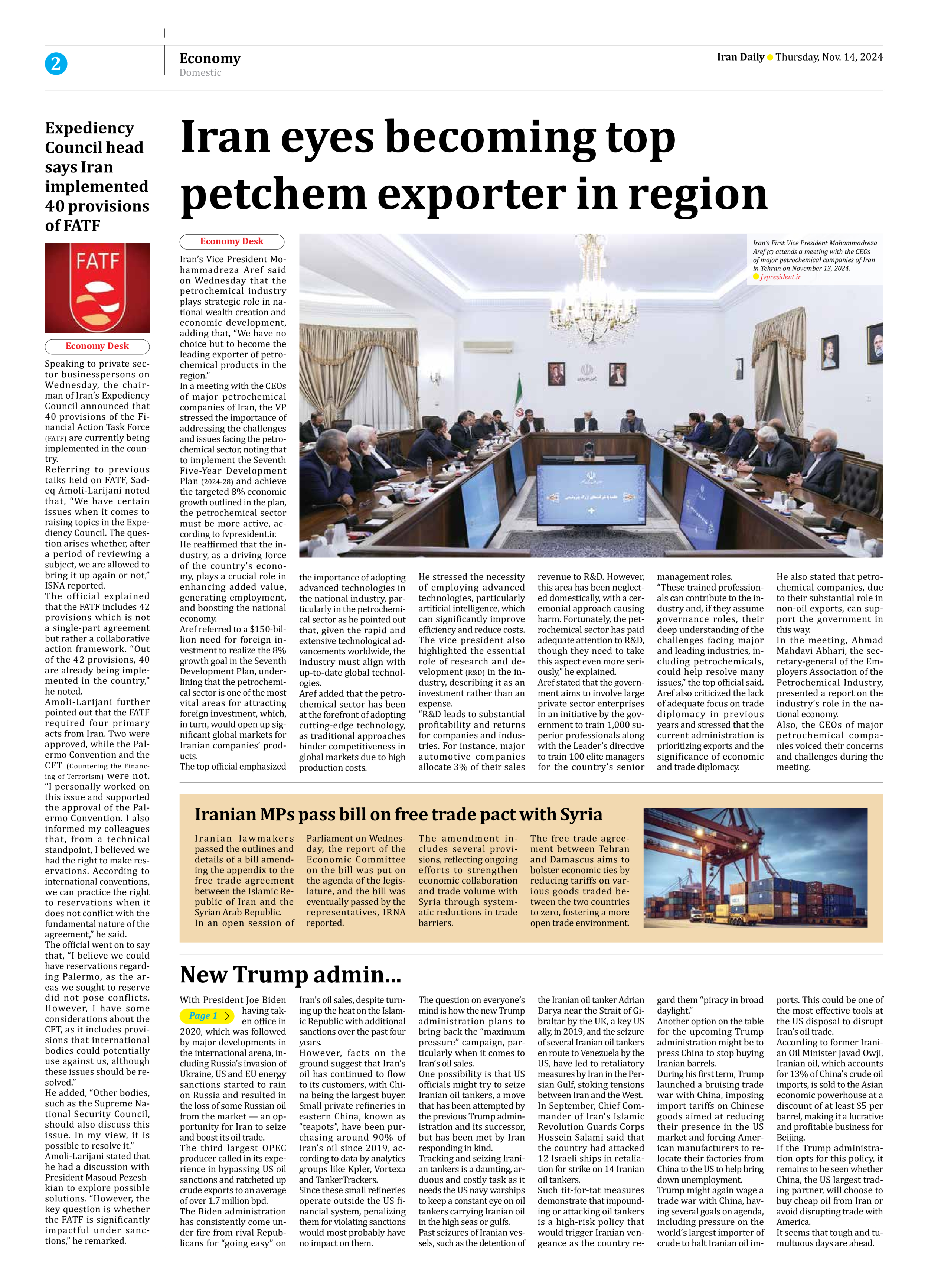
New Trump admin...
Page 1
With President Joe Biden having taken office in 2020, which was followed by major developments in the international arena, including Russia’s invasion of Ukraine, US and EU energy sanctions started to rain on Russia and resulted in the loss of some Russian oil from the market — an opportunity for Iran to seize and boost its oil trade.
The third largest OPEC producer called in its experience in bypassing US oil sanctions and ratcheted up crude exports to an average of over 1.7 million bpd.
The Biden administration has consistently come under fire from rival Republicans for “going easy” on Iran’s oil sales, despite turning up the heat on the Islamic Republic with additional sanctions over the past four years.
However, facts on the ground suggest that Iran’s oil has continued to flow to its customers, with China being the largest buyer. Small private refineries in eastern China, known as “teapots”, have been purchasing around 90% of Iran’s oil since 2019, according to data by analytics groups like Kpler, Vortexa and TankerTrackers.
Since these small refineries operate outside the US financial system, penalizing them for violating sanctions would most probably have no impact on them.
The question on everyone’s mind is how the new Trump administration plans to bring back the “maximum pressure” campaign, particularly when it comes to Iran’s oil sales.
One possibility is that US officials might try to seize Iranian oil tankers, a move that has been attempted by the previous Trump administration and its successor, but has been met by Iran responding in kind.
Tracking and seizing Iranian tankers is a daunting, arduous and costly task as it needs the US navy warships to keep a constant eye on oil tankers carrying Iranian oil in the high seas or gulfs.
Past seizures of Iranian vessels, such as the detention of the Iranian oil tanker Adrian Darya near the Strait of Gibraltar by the UK, a key US ally, in 2019, and the seizure of several Iranian oil tankers en route to Venezuela by the US, have led to retaliatory measures by Iran in the Persian Gulf, stoking tensions between Iran and the West.
In September, Chief Commander of Iran’s Islamic Revolution Guards Corps Hossein Salami said that the country had attacked 12 Israeli ships in retaliation for strike on 14 Iranian oil tankers.
Such tit-for-tat measures demonstrate that impounding or attacking oil tankers is a high-risk policy that would trigger Iranian vengeance as the country regard them “piracy in broad daylight.”
Another option on the table for the upcoming Trump administration might be to press China to stop buying Iranian barrels.
During his first term, Trump launched a bruising trade war with China, imposing import tariffs on Chinese goods aimed at reducing their presence in the US market and forcing American manufacturers to relocate their factories from China to the US to help bring down unemployment.
Trump might again wage a trade war with China, having several goals on agenda, including pressure on the world’s largest importer of crude to halt Iranian oil imports. This could be one of the most effective tools at the US disposal to disrupt Iran’s oil trade.
According to former Iranian Oil Minister Javad Owji, Iranian oil, which accounts for 13% of China’s crude oil imports, is sold to the Asian economic powerhouse at a discount of at least $5 per barrel, making it a lucrative and profitable business for Beijing.
If the Trump administration opts for this policy, it remains to be seen whether China, the US largest trading partner, will choose to buy cheap oil from Iran or avoid disrupting trade with America.
It seems that tough and tumultuous days are ahead.







